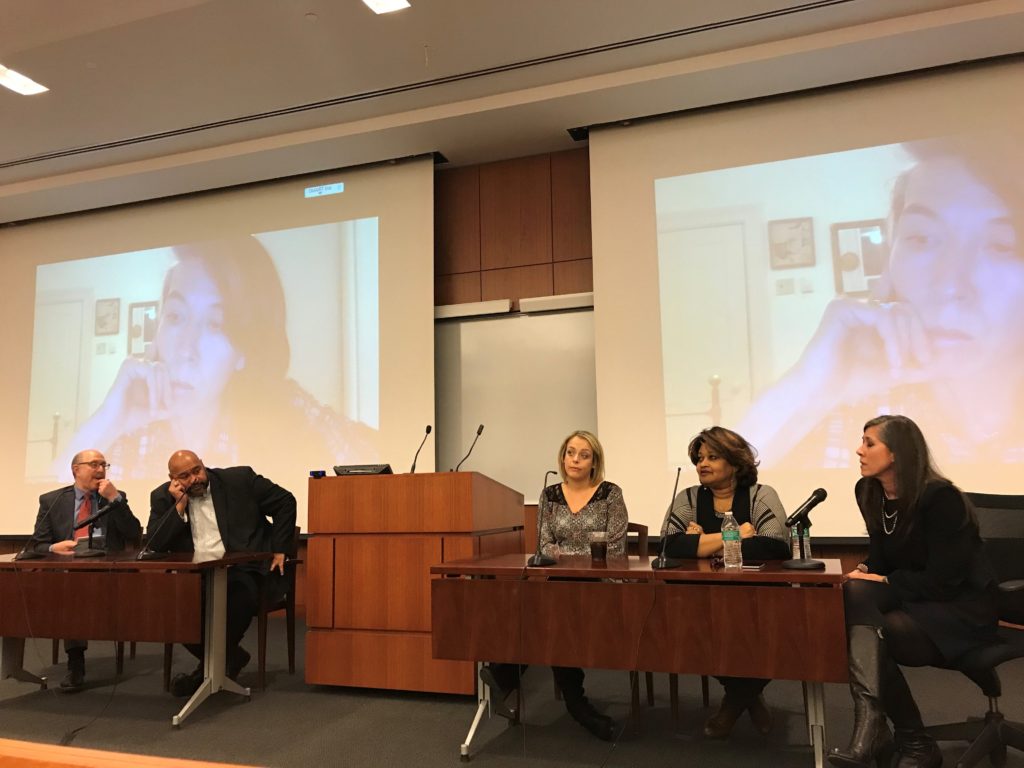On November 27th, 2018, the CSE Institute and the David F. and Constance B. Girard-diCarlo Center for Ethics, Integrity and Compliance hosted a screening at Villanova Law of the Guardian Documentary, “The Trap: The Deadly Sex Trafficking Cycle in American Prisons”, along with a panel discussion with the film’s director/producer Mei-Ling McNamara, survivor leaders Marian Hatcher and Nikki Bell, and Pennsylvania Department of Corrections Secretary John Wetzel. The documentary focuses on how pimps/traffickers manipulate aspects of the criminal justice system to target and recruit incarcerated women by using publicly available information to write letters and put money on their books.
Persons who sell sex are criminalized far more frequently than those buy it. This results in those who sell sex eventually being incarcerated due to the recidivism provisions in Pennsylvania’s prostitution law. This statutory construction ignores the reality of prostitution being less of a “choice” and more of an act of desperation or coercion, while also exposing prostituted persons to the collateral consequences of incarceration and the risk of continued exploitation. CSE Institute Director, Shea Rhodes, and Justice for Victims Fellows Sarah Robinson and Jamie Pizzi, recently penned an op-ed in The Philadelphia Inquirer addressing the Commonwealth’s draconian recidivist provisions and how they especially effect prostituted persons.
We are staunch proponents of the Nordic Model, which decriminalizes the selling of sex and focuses on targeting traffickers and the demand for commercial sex. By focusing the law’s attention on those who freely choose to sexually exploit others, we not only drive down the demand for prostitution, but shift the narrative to focus on who the real “criminal” in the equation is. Continuing to charge the persons who sell sex with a crime does little to address the root of why prostitution still exists. Instead, it ignores the plight of prostituted persons, and perpetuates the damaging notion that this is somehow a “victimless-crime”.

Steve Chanenson, John Wetzel, Nikki Bell, Marian Hatcher, Shea Rhodes, and Mei-Ling McNamara on video call discussed the criminal justice system’s part in battling commercial sexual exploitation at Villanova University Charles Widger School of Law.
All views expressed herein are personal to the author and do not necessarily reflect the views of the Villanova University Charles Widger School of Law or Villanova University.


